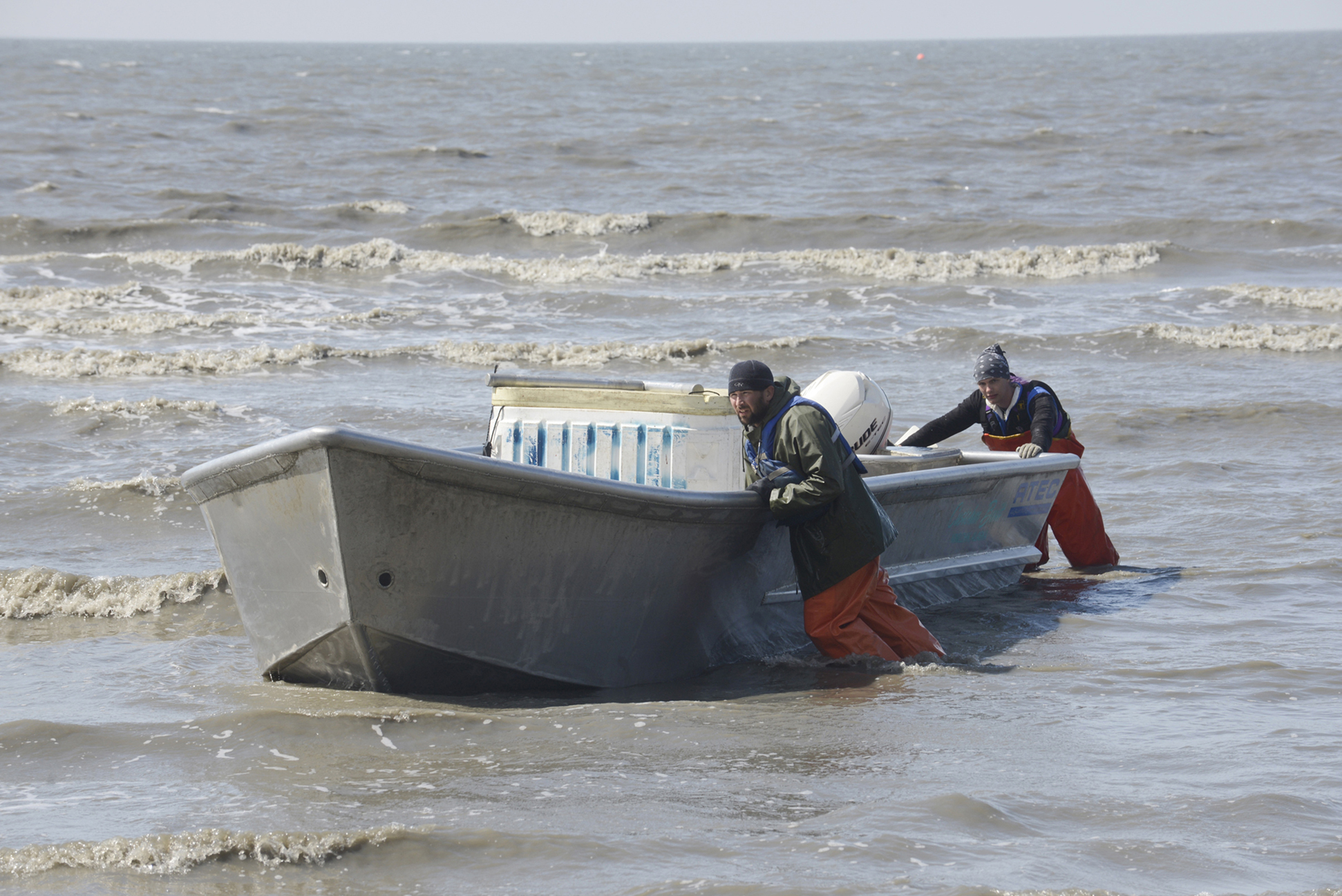An initiative proposing a ban on setnets in certain parts of the state was rejected Monday as a “prohibited appropriation” under the advice of Alaska’s Department of Law.
Lt. Gov. Mead Treadwell announced Monday afternoon that the proposed initiative would not appear on the ballot.
The Department of Law issued a 12-page opinion Jan. 3 that determined that having voters consider the ban would be an appropriation, which cannot be addressed in a ballot initiative.
That was based largely on a 1996 Alaska Supreme Court decision in Pullen vs. Ulmer that maintained that salmon are assets that cannot be appropriated by initiative, and that preferential treatment of certain fisheries may constitute a prohibited appropriation.
In the Pullen case, a ballot initiative would have allocated a preferential portion of salmon to subsistence, personal use and sport fisheries, and limited them to about 5 percent of the projected statewide harvest. The state’s Supreme Court ruled that was an unconstitutional appropriation, and the question was not allowed on the ballot.
A ban would largely have affected Cook Inlet setnetters, although the text of the ordinance sought to prohibit setnetting across the state in areas that do not have rural designations — in addition to the Upper Cook Inlet that would include Valdez and Juneau, where no setnetting occurs.
Setnetting would have remained in other communities, including Kodiak, unless the rural designation was removed.
The Cook Inlet-specific nature of the case helped make it a allocative issue, according to the legal opinion.
“Prohibiting shore gill nets and set nets in nonsubsistence areas effectuates an actual, measureable allocation of chinook salmon from the East Side Set Net commercial salmon fishery in Cook Inlet to the Kenai River in-river sport fishery and to the Kenai and Kasilof personal use fisheries,” wrote Assistant Attorney General Elizabeth Bakalar on behalf of Attorney General Michael Geraghty.
The Alaska Fisheries Conservation Alliance proposed the initiative in November, and was targeting the August 2016 ballot.
The conservation alliance was founded by those with financial and recreational interests in sportfishing, including Bob Penney, who has previously stated his desire to reverse the current allocations between commercial and sport fishing in Cook Inlet. Penney is the founder of the Kenai River Sportfishing Association. His grandson, Clark Penney, serves as AFCA’s executive director.
“This decision is puzzling,” wrote Clark Penney in the group’s response. “I want to thank the Lt. Governor, the Alaska Division of Elections and the Alaska Department of Law for doing their due diligence, however I struggle to see the logic or the legality of this decision.”
The organization has 30 days to ask for judicial review, according to the state.
In a Monday statement, AFCA indicated that it would was reviewing the state’s legal opinion, and would consider a legal challenge to the state’s decision.
“One of the ideas being discussed is a legal challenge, another is a modified initiative,” wrote AFCA founder Joe Connors in an emailed response to questions. “Be sure of one thing, this is not over, that is for sure.”
The Alaska Salmon Alliance quickly praised the decision.
“We are elated by Lieutenant Governor Treadwell’s decision to not certify this job-killing measure,” said Arni Thomson, executive director of the Alaska Salmon Alliance. “Though it was highly unlikely to ever pass, the Set Netter Ban would have instantly destroyed the jobs of more than 500 Alaska families who set net to make a living. We are happy to see it dead on arrival.”
The salmon alliance, the United Cook Inlet Drift Association, the Kenai Peninsula Fishermen’s Association, Kenai Area Fisherman’s Coalition, the city of Kenai and the Kenai Peninsula Borough Assembly had all officially opposed the initiative.
The fishing groups had characterized it as allocative, which the state agreed with.
The DOL opinion states: “Were this type of initiative permissible, voters could continue to reallocate stocks to any fishery simply by eliminating specific gear or particular means and methods of catching fish — for example, the next initiative might propose to eliminate purse seining, trawling, dipnetting, or catch-and-release sport fishing in particular areas to increase harvest opportunity for other types of users. This would ‘prevent … real regulation and careful administration’ of Alaska’s salmon stocks, contrary to the purpose of the prohibition on initiative by appropriation.”
In a statement responding to the decision, AFCA’s Board Chair Bill McKay disagreed with the legal interpretation of the initiative.
“I am extremely disappointed in this decision,” McKay wrote.
“This initiative is clearly statewide and seeks no authority to regulate or allocate fisheries management in our state. We should be out gathering signatures today, not looking at lawsuits.”
The end of the initiative, however, doesn’t mean the issue is resolved.
“On this initiative we received input from the sponsor, supporters, and opponents, all of which we shared with the attorney general’s office,” Treadwell wrote in the state’s press release about the decision. “We have urged the parties to work together with the Board of Fish to address concerns about setnets and fisheries allocations.”
In addition to a legal challenge or altered initiative, AFCA could take the matter to the Legislature or Board of Fisheries.
“Going forward, we will evaluate all options for halting the indiscriminate bycatch of Alaska king salmon,” Connors wrote in response to a question about whether or not the organization will lobby the Legislature for consideration of similar legislation.
The group also will discuss taking the matter to the fish board, Connors wrote.
Molly Dischner is a reporter for the Alaska Journal of Commerce. She can be reached at molly.dischner@alaskajournal.com.



